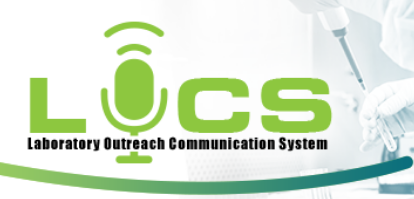The CDC Division of Laboratory Systems published a news release indicating they will no longer be seeking EUA approval from the FDA for the RT-PCR test for Covid-19 as of December 31st 2021.
The published the following:
Level: Laboratory Alert
After December 31, 2021, CDC will withdraw the request to the U.S. Food and Drug Administration (FDA) for Emergency Use Authorization (EUA) of the CDC 2019-Novel Coronavirus (2019-nCoV) Real-Time RT-PCR Diagnostic Panel, the assay first introduced in February 2020 for detection of SARS-CoV-2 only. CDC is providing this advance notice for clinical laboratories to have adequate time to select and implement one of the many FDA-authorized alternatives.
Visit the FDA website for a list of authorized COVID-19 diagnostic methods. For a summary of the performance of FDA-authorized molecular methods with an FDA reference panel, visit this page.
In preparation for this change, CDC recommends clinical laboratories and testing sites that have been using the CDC 2019-nCoV RT-PCR assay select and begin their transition to another FDA-authorized COVID-19 test. CDC encourages laboratories to consider adoption of a multiplexed method that can facilitate detection and differentiation of SARS-CoV-2 and influenza viruses. Such assays can facilitate continued testing for both influenza and SARS-CoV-2 and can save both time and resources as we head into influenza season. Laboratories and testing sites should validate and verify their selected assay within their facility before beginning clinical testing.
On the FDA page referenced above they outline the following:
During the early months of the Coronavirus Disease 2019 (COVID-19) pandemic, clinical specimens were not readily available to developers of IVDs to detect SARS-CoV-2. Therefore, the FDA authorized IVDs based on available data from contrived samples generated from a range of SARS-CoV-2 material sources (for example, gene specific RNA, synthetic RNA, or whole genome viral RNA) for analytical and clinical performance evaluation. While validation using these contrived specimens provided a measure of confidence in test performance at the beginning of the pandemic, it is not feasible to precisely compare the performance of various tests that used contrived specimens because each test validated performance using samples derived from different gene specific, synthetic, or genomic nucleic acid sources.
These releases have raised some questions.
The RT diagnostic testing kits have been in use since February 2020 to detect coronavirus, which in this case is SARS-CoV-2. The FDA statement implies that the original test used "contrived samples", or SARS Cov-2 genetic material components, not the full RNA sequence.
In the US alone, there have been over 34.4 million cases reported and over 610,000 deaths, with the majority based on these tests. At the same time, hospitalizations and deaths from influenza dropped significantly. In 2019 the CDC estimated between 24,000 to 62,000 people had died of illness due to influenza. In 2020, only 646 deaths. Quite the change.
Of course this resulted in a lot of speculation that many of the SARS CoV-2 deaths could be attributed to the flu, assuming the testing was not accurate. It's still a big jump from 61,000 to 610,000 however based on the statement from the FDA site, the original tests may not have been able to distiguish between the SARS CoV-2 and the flu, both being coronavirus variants.
Contrary to what some sites are reporting, the CDC is not recommending that testing stops. Instead it recommends that the laboratories switch to tests that distinguish between the flu and SARS Cov-2, in order to save both time and resources.
Sounds fair. But why December 2021 if we know this now? What about all those people who were told they had SARS Cov-2. Did we start masks mandates for the flu thinking it was a much deadlier disease? Did people die from the flu or SARS? Does it matter? There is no doubt lives were saved by reducing risks of exposure.
What is clear is the science is not immutable. It's a process of understanding and those making policy decisions that affect peoples lives need to come to grips with that. And soon.










